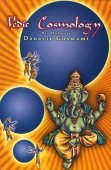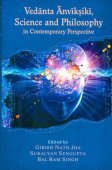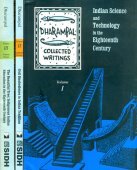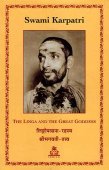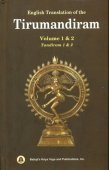Debate: 1 definition
Introduction:
Debate means something in Hinduism, Sanskrit. If you want to know the exact meaning, history, etymology or English translation of this term then check out the descriptions on this page. Add your comment or reference to a book if you want to contribute to this summary article.
In Hinduism
Ayurveda (science of life)
Source: INSA Digital Repository: Caraka’s Approach to KnowledgeDebate or Discussion was an important part of Ayurveda, as it promotes the advancement of knowledge, etc. (Cf. Charaka Samhita, Vimana 8.27- 65).—The seamlessness between medicine and philosophy in Charaka Samhita is again evident when his detailed discussion on the logical parameters of debate appears in a chapter on ‘roga-bhisag-jitiyam’ (features of therapeutics). [...] Caraka advised physicians to confine their discussion among professional peers and to Ayurvedic topics. He was a strong advocate of sambhasha (discussion) as it ‘promotes advancement of knowledge, fluent speech; enhances fame; removes doubt; creates confidence, and uncovers new ideas’.

Āyurveda (आयुर्वेद, ayurveda) is a branch of Indian science dealing with medicine, herbalism, taxology, anatomy, surgery, alchemy and related topics. Traditional practice of Āyurveda in ancient India dates back to at least the first millenium BC. Literature is commonly written in Sanskrit using various poetic metres.
See also (Relevant definitions)
Full-text (+294): Vada, Vadavivada, Jalpa, Vipralapta, Vivada, Peer review, Nigrahasthana, Training, Bahasa, Vivadamana, Bahas, Vatimva, Samudrasuri, Samvadarthi, Vicaravimarsha, Vataghata, Anyonyavamarda, Tondasa-tonda, Bhavati-na-bhavati, Vadanakshatramala.
Relevant text
Search found 142 books and stories containing Debate; (plurals include: Debates). You can also click to the full overview containing English textual excerpts. Below are direct links for the most relevant articles:
Formal Education System in Ancient India (by Sushmita Nath)
Debate and Discussion Method of Teaching < [Chapter 6 - Methods of Teaching and the Teacher–Student relationship]
Tours or Travelling (as a method of teaching) < [Chapter 6 - Methods of Teaching and the Teacher–Student relationship]
A History of Indian Philosophy Volume 1 (by Surendranath Dasgupta)
Part 1 - Comprehension of the philosophical Issues more essential than the Dialectic of controversy < [Chapter X - The Śaṅkara School Of Vedānta]
Part 2 - Nyāya and Vaiśeṣika sūtras < [Chapter VIII - The Nyāya-Vaiśeṣika Philosophy]
Part 6 - Caraka, Nyāya sūtras and Vaiśeṣika sūtras < [Chapter VIII - The Nyāya-Vaiśeṣika Philosophy]
Brihad Bhagavatamrita (commentary) (by Śrī Śrīmad Bhaktivedānta Nārāyana Gosvāmī Mahārāja)
Verse 2.1.47 < [Chapter 1 - Vairāgya (renunciation)]
Verse 2.2.164-165 < [Chapter 2 - Jñāna (knowledge)]
Verse 1.1.32-34 < [Chapter 1 - Bhauma (the earthly plane)]
Charaka Samhita and Sushruta Samhita (by Nayana Sharma)
The Student of Āyurveda (3b): Methodology of Teaching and Study < [Chapter 3]
Quackery: The “Fraudulent” Medical Practitioners < [Chapter 2]
The Physician in the Caraka and Suśruta Saṃhitās < [Chapter 2]
Nyaya-Vaisheshika categories (Study) (by Diptimani Goswami)
Categories in the Nyāya system < [Chapter 2 - Salient features of Nyāya-Vaiśeṣika System]
Historical Survey of Nyāya System < [Chapter 1 - Introduction]
Blue Annals (deb-ther sngon-po) (by George N. Roerich)
Chapter 8 - Later Lineages (iii): The scholar smra ba'i seng ge < [Book 12 - Peace-Making Lineages]
Chapter 17 - Phyogs las rnam rgyal < [Book 10 - The Kālacakra]
Chapter 29 - Sonam Gyatso (v): Knowledge through reflection < [Book 10 - The Kālacakra]
Related products
